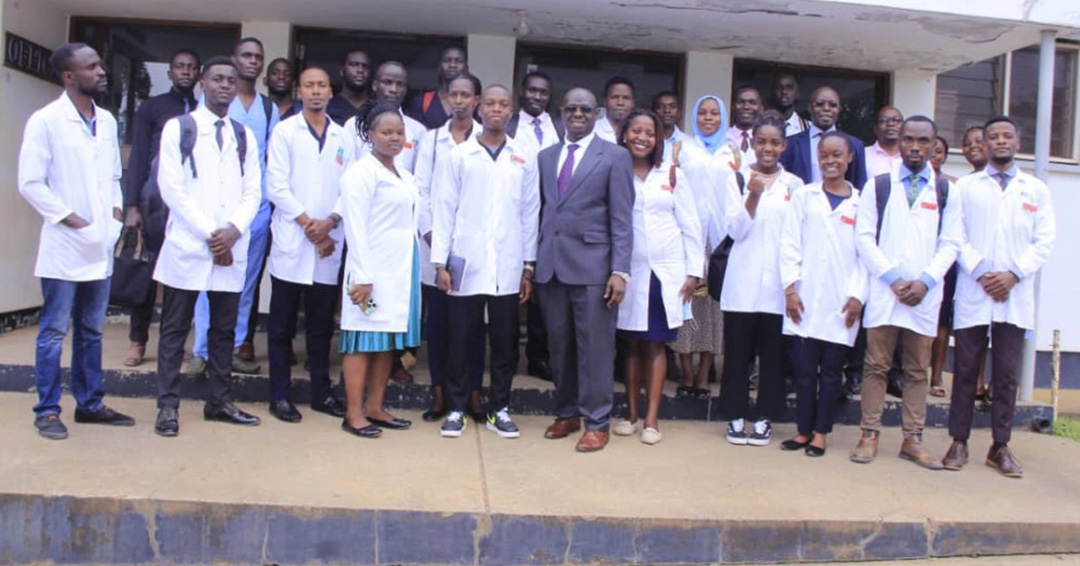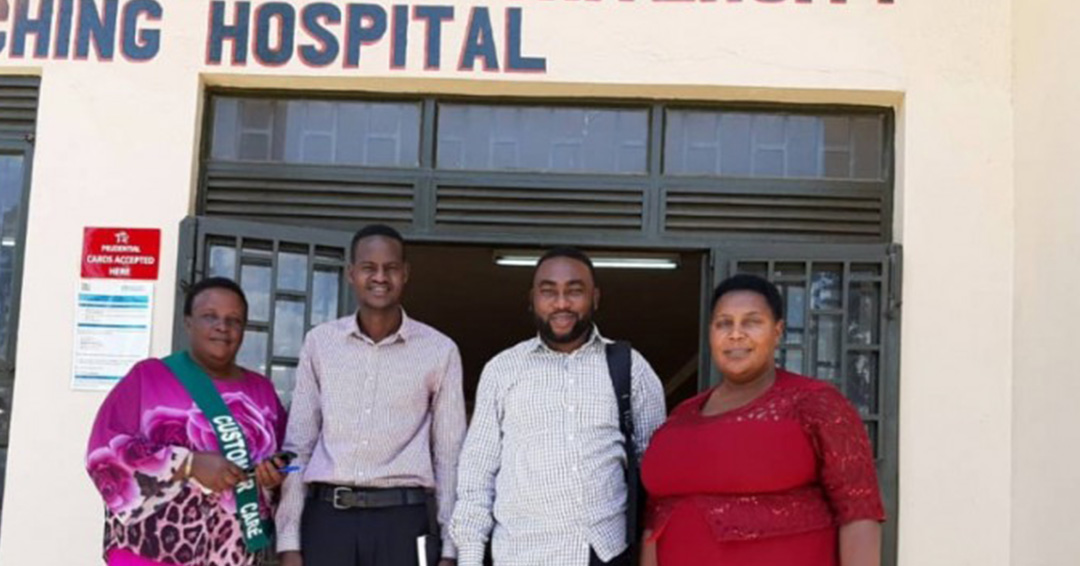
Sep
KIU Teaching Hospital Strengthens Partnership With Kitagata General Hospital
September 5, 2024, 9:40 am
 Administrator
Administrator

The new Public Relations Officer (PRO) for KIU western campus this week went to his new work station in Ishaka, where he toured the Universityc��?cs teaching hospital, and these are his reflections about his visit there.
Yesterday, my first day at KIU-WC, I got a tour of the teaching hospital by the Hospital Administrator Peninah Kanyange.
Together with web administrator Oluwole Afolabi, we were taken first to the laboratory and shown around the different sub-departments of serology, pathology, microbiology, histopathology, and hematology. We then went to pediatrics, finance, procurement, marketing, Accident and Emergency (A&E), monitoring, dentistry, orthopedic, gynecology, and psychiatry units. We, however, desisted from visiting the mortuary.
We also visited the various wards and interacted with all the officers-in-charge, intern doctors, nurses and students alike.
Kampala International University Teaching Hospital is the first and biggest teaching hospital in Uganda, with a bed capacity of 700, according to the Hospital Administrator. It has an outpatient department (OPD) as well as a top-of-the-range private wing.
Patients come from as far as Bushenyi, Sheema, Mitooma, Mbarara, Kasese, Rukungiri, Kanungu, Ntungamo and Ibanda districts to receive quality services at the hospital.
I was quite impressed with the cleanliness at the hospital, with the dirty and smelly environment common at various hospitals but absent here. Cleaners stand at attention to quickly erase any dirt that may surface.
The staff too was commonplace, with hospital guides at the behest of patients who need directions and help to reach their destinations. I was surprised that there were even customer service personnel assigned specifically to take care of every patientc��?cs needs.
Ms. Kanyange said most of the patients in Western Uganda trust the hospital even more than public health centers because of its unrivaled quality medical care.
For instance, the maternity ward has its own fully-fledged theatre, within the ward, just to carry out operations on women who may develop complications during childbirth. This helps to reduce the child and maternal mortality rates, a persistent problem for Uganda and other developing countries.
After the two and a half hour tour of the expansive hospital, I left contented that for the time I will spend in Ishaka, I have a reliable health center to go to for my medical care needs.
collins.kakwezi@kiu.ac.ug
Kampala International University,
Box 20000, Ggaba Road, Kansanga, Kampala
+256-760 502660
+256-700 100808